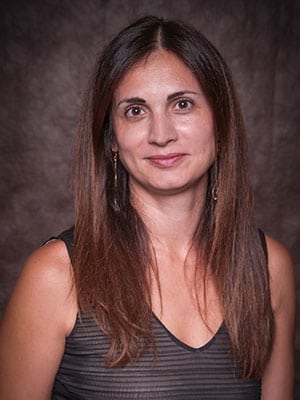Music
(MMus, 1.5 Years or 3 Semesters)
Duration
1.5 years (3 semesters)
Qualification Awarded
Master of Music
Level of Qualification
Master Degree (2nd Cycle)
Language of Instruction
English
Mode of Study
Full-time or Part-time
Minimum ECTs Credits
90
No enrolments for current semester
Request Information
Music (MMus, 1.5 Years or 3 Semesters)
| Duration | 1.5 years (3 semesters) |
| Qualification Awarded | Master of Music |
| Level of Qualification | Master Degree (2nd Cycle) |
| Language of Instruction | English |
| Mode of Study | Full-time or Part-time |
| Minimum ECTS Credits | 90 |
No enrolments for current semester
Request Information
Profile of the Programme
The MMus programme aims to ensure the students’ ability to excel in today’s professional environment, where musicians must posses exceptional training as both teachers and performers. Specifically, it enhances and develops the students’ personal performance standards; the range of their performance experience; their effectiveness as pedagogues; and their problem-solving, critical thinking, and communication skills.
Career Prospects
The degree is primarily oriented towards students whose careers will involve a combination of performance and teaching, with a specialization on a particular performance medium. Graduates will be qualified for employment as instructors in private and public conservatories and music schools.
Examples:
Freelance Pianist and Piano Teacher
Violin Instructor in a private conservatory
Guitar Instructor in a public music lyceum
Access to Further Studies
Graduates of the programme can be accepted into Third Cycle degrees (Doctorate Degree)
Audition and Interview
The MMus audition on the applicant’s primary study instrument will consist of three to four pieces that exhibit contrasting style periods (as appropriate to the instrument), tempi, and expressive and technical demands. The entire audition program should be no less than twenty minutes and should demonstrate the applicant’s ability to handle large musical works.
At the time of the audition, applicants will be interviewed by the MMus faculty and should be prepared to answer questions related to:
- Personal reflection on their past artistic and educational experiences;
- Their reasons for pursuing the MMus degree;
- How they expect the MMus degree to help them to fulfil their artistic and professional goals.
The audition repertoire will vary according to each applicant’s instrument but should generally reflect the standard of the final recital of a Bachelor’s degree in Performance or Performance Studies. Below are two indicative examples of acceptable MMus audition programs. These are provided for illustrative purposes and actual audition programs must be approved in advance by the MMus Program Coordinator and the relevant instrument instructor.
Indicative Examples of MMus Audition Programs
Classical Piano
- J. S. Bach, Prelude and Fugue in C-sharp major, from WTC I
- Beethoven, Sonata in B-flat major, Op. 22, 1st movement
- Chopin, Scherzo No. 3 in C-sharp minor, Op. 39
- Debussy, Pagodes & Soirée dans Grenade, from Estampes
Violin
- Technical solo composition by Dont, Gaviniès, or Paganini
- Two contrasting movements from a solo work by J. S. Bach
- One fast and one slow movement from any Classical or Romantic concerto or solo chamber work
English Language Proficiency
Students satisfy the English requirements if their first degree was taught in English. Otherwise, they would need to present a minimum TOEFL score 550 and above, or Computer-based TOEFL score of 213 and above, or Internet-based TOEFL (iBT) score 79-80 and above, or GCSE (or GCE) English Language “O” Level of “C” or above or IELTS of 6.5 and above or Cambridge Exams (First Certificate with Grade B and above, as well as Proficiency with Grade C and above or a score placement at the ENGL-100 level of the University English Placement Test. The University offers English courses at various levels to help students reach the required standard for admission to a graduate program.
Course assessment usually comprises a comprehensive final exam and continuous assessment. Continuous assessment may include, amongst others things, mid-terms exams, projects, and class participation.
For Applied Primary Study courses, the final examination is a performance evaluated by a jury of three faculty members, including the Primary Study instructor, the MMus Programme Coordinator, and at least one other faculty member.
Letter grades are calculated based on the weight of the final exam and the continuous assessment and the actual numerical marks obtained in these two assessment components. Based on the course grades the student’s semester grade point average (GPA) and cumulative point average (CPA) are calculated.
The student must complete 90 ECTS and all programme requirements.
A minimum cumulative grade point average (CPA) of 2.0 is required. Thus, although a ‘D-‘ is a PASS grade, in order to achieve a CPA of 2.0 an average grade of ‘C’ is required.
The student must perform a one-hour graduation recital (which is evaluated as the final assessment of MUSP 513 Post-Graduate Primary Study 3).
The student must submit an approved thesis (which is evaluated as the final project of MUCT-222 Thesis Writing Seminar).
Upon successful completion of this program, the students should be able to:
- Demonstrate advanced technical and interpretive skills in musical performance.
- Demonstrate and express knowledge of a wide variety of musical repertoire.
- Perform in a variety of ensemble situations and solo situations.
- Practice and rehearse effectively, alone and with groups.
- Demonstrate a high level of musical literacy.
- Demonstrate a high level of aural, creative, and re-creative skills.
- Communicate effectively orally and in writing.
- Demonstrate advanced knowledge of repertory for their primary study.
- Demonstrate high understanding of current theoretical research on the nature of musical performance.
- Demonstrate high understanding of theoretical and practical perspectives in regards to music pedagogy in a studio based context
- Manage the entrepreneurial aspects of their careers as performers and teachers.
- Conduct independent research in any area of music related scholarship, but especially in the areas of performance studies and pedagogy related to their primary study.
| Course Code | Course Title | ECTS Credits |
|---|---|---|
| MUCT-500 | Problems and Methods of Music Research | 10 |
| MUCT-505 | Contemporary Methods of Music Analysis | 10 |
| MUCT-510 | Readings in Performance Studies | 10 |
| MUCT-522 | Thesis Writing Seminar | 10 |
| MUED-515 | Principles of Music Pedagogy | 10 |
| MUED-570 | Advanced Music Pedagogy | 10 |
| MUSP-511 | Post-Graduate Primary Study 1 | 10 |
| MUSP-512 | Post-Graduate Primary Study 2 | 10 |
| MUSP-513 | Post-Graduate Primary Study 3 | 10 |
Semester 1
| Course ID | Course Title | ECTS Credits |
|---|---|---|
| MUCT-500 | Problems and Methods of Music Research | 10 |
| MUCT-505 | Contemporary Methods of Music Analysis | 10 |
| MUSP-511 | Post-Graduate Primary Study 1 | 10 |
Semester 2
| Course ID | Course Title | ECTS Credits |
|---|---|---|
| MUCT-510 | Readings in Performance Studies | 10 |
| MUED-515 | Principles of Music Pedagogy | 10 |
| MUSP-512 | Post-Graduate Primary Study 2 | 10 |
Semester 3
| Course ID | Course Title | ECTS Credits |
|---|---|---|
| MUCT-522 | Thesis Writing Seminar | 10 |
| MUED-570 | Advanced Music Pedagogy | 10 |
| MUSP-513 | Post-Graduate Primary Study 3 | 10 |




